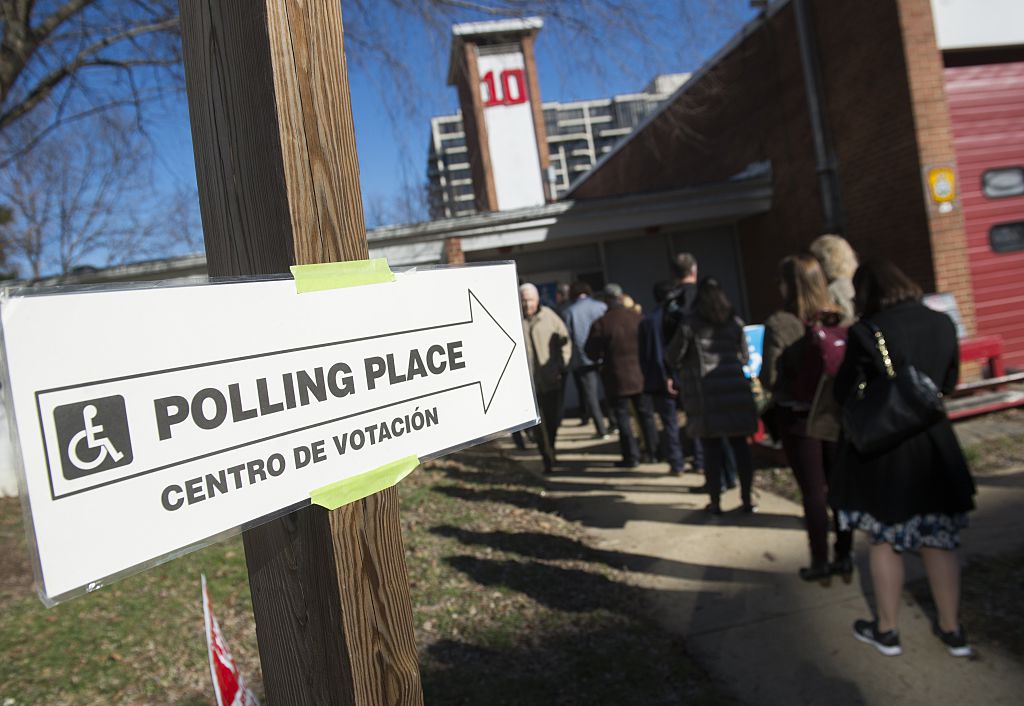Voters in Ohio may soon have to fork over thousands of dollars to keep polls open late

A free daily email with the biggest news stories of the day – and the best features from TheWeek.com
You are now subscribed
Your newsletter sign-up was successful
Ohio is poised to become the first state in the U.S. that actually might make its voters pay out of their own pockets to extend voting hours. On Wednesday, lawmakers approved a bill that would require voters to post a cash bond if they want polling hours extended past the normal cutoff time. Typically, voters submit these sorts of requests to the court if some unforeseen emergency — be it a natural disaster or a power outage — interrupts voting during scheduled hours.
Ohio State Sen. Bill Seitz (R) says the new bill would help cover the costs of keeping polls open later than normal. "Sadly, in both the November 2015 and March 2016 elections, rogue courts in Hamilton County issued orders extending polling hours," Seitz wrote in an op-ed this week. "These orders cost Hamilton County taxpayers $57,000, and forced the inside poll workers to stay around for an extra 60 to 90 minutes after already working a 14-hour day."
Those opposed to the bill argue the extensions weren't exactly requested without reason, however. In November 2015, a software glitch in newly installed systems caused some voters to be turned away without casting a ballot, while in March 2016, a car accident blocked off a main thoroughfare and left many voters stranded on the road during election day. "I think it's unconstitutional," Ohio State Rep. Kathleen Clyde (D) told Think Progress about the bond bill. "It's tantamount to a poll tax to require voters to post a cash bond, and we really need to have the ability to petition state or federal courts if there is some type of emergency necessitating the extension of polling hours."
The Week
Escape your echo chamber. Get the facts behind the news, plus analysis from multiple perspectives.

Sign up for The Week's Free Newsletters
From our morning news briefing to a weekly Good News Newsletter, get the best of The Week delivered directly to your inbox.
From our morning news briefing to a weekly Good News Newsletter, get the best of The Week delivered directly to your inbox.
The bill will next move to Ohio Gov. John Kasich's (R) desk, where he'll decide whether to sign it into law.
A free daily email with the biggest news stories of the day – and the best features from TheWeek.com
-
 The 8 best TV shows of the 1960s
The 8 best TV shows of the 1960sThe standout shows of this decade take viewers from outer space to the Wild West
-
 Microdramas are booming
Microdramas are boomingUnder the radar Scroll to watch a whole movie
-
 The Olympic timekeepers keeping the Games on track
The Olympic timekeepers keeping the Games on trackUnder the Radar Swiss watchmaking giant Omega has been at the finish line of every Olympic Games for nearly 100 years
-
 Judge orders Washington slavery exhibit restored
Judge orders Washington slavery exhibit restoredSpeed Read The Trump administration took down displays about slavery at the President’s House Site in Philadelphia
-
 Hyatt chair joins growing list of Epstein files losers
Hyatt chair joins growing list of Epstein files losersSpeed Read Thomas Pritzker stepped down as executive chair of the Hyatt Hotels Corporation over his ties with Jeffrey Epstein and Ghislaine Maxwell
-
 Judge blocks Hegseth from punishing Kelly over video
Judge blocks Hegseth from punishing Kelly over videoSpeed Read Defense Secretary Pete Hegseth pushed for the senator to be demoted over a video in which he reminds military officials they should refuse illegal orders
-
 Trump’s EPA kills legal basis for federal climate policy
Trump’s EPA kills legal basis for federal climate policySpeed Read The government’s authority to regulate several planet-warming pollutants has been repealed
-
 House votes to end Trump’s Canada tariffs
House votes to end Trump’s Canada tariffsSpeed Read Six Republicans joined with Democrats to repeal the president’s tariffs
-
 Bondi, Democrats clash over Epstein in hearing
Bondi, Democrats clash over Epstein in hearingSpeed Read Attorney General Pam Bondi ignored survivors of convicted sex offender Jeffrey Epstein and demanded that Democrats apologize to Trump
-
 El Paso airspace closure tied to FAA-Pentagon standoff
El Paso airspace closure tied to FAA-Pentagon standoffSpeed Read The closure in the Texas border city stemmed from disagreements between the Federal Aviation Administration and Pentagon officials over drone-related tests
-
 Judge blocks Trump suit for Michigan voter rolls
Judge blocks Trump suit for Michigan voter rollsSpeed Read A Trump-appointed federal judge rejected the administration’s demand for voters’ personal data